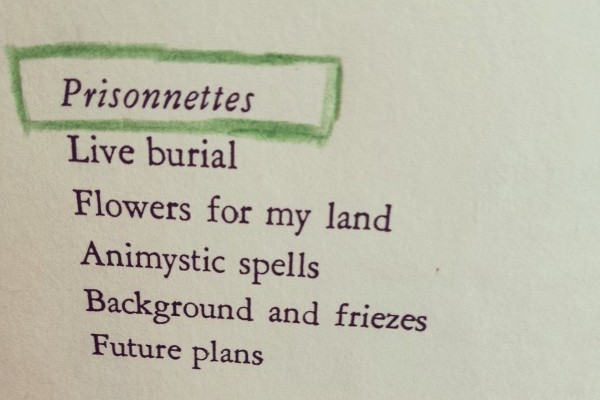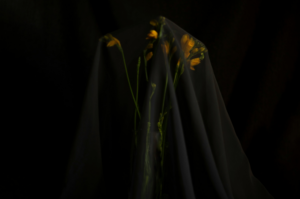The sonnet may not have been invented in Africa, but our poets write beautiful sonnets everyday. Novels may not have been invented in Africa, but our novels are some of the most beautiful ever written.
We do have inventions of our own, though. African writers have always played with form and style and content in a bid to create new ways of writing and new objects for the literary market.
Over the next five weeks, I will do weekly features of literary forms that emerged out of the African context—literary inventions that could not have appeared anywhere else.
This week’s feature takes us to a Nigerian prison cell in the late 1960s.
The Prisonnettes
Prisonette. Sounds cute, right? Don’t be fooled. It means something quite dark.
Stuck in solitary confinement—from 1967-1969—without any means of writing, Soyinka had to create verses that were short enough to be memorized until he found a scrap of paper on which to write them. That’s how the prisonette was born.
Here is how he describes it:
“the form was quite arbitrary, something short enough and as self-containing as possible to remain in the head until, at night-time or in a slack moment of surveillance I could transfer it to the inside of cigarette packet or an equally precious scrap of salvage.
Prisonnettes are made up of any number of cinquains or five-lined stanzas, the first of which is often a single word or a short phrase. Imagine a super-intense haiku that sits somewhere between an incantation and a maxim. Each prisonnette captures a scene, but because Soyinka is so economical with words, the image appears with such mystical intensity— a quick flash and then disappears.
Soyinka dedicates the prisonettes to his jailer.
“The prisonettes,” he writes “are dedicated to all who participated in the two-year experiment on how to break down the human mind.”
Two years in solitary confinement—long stretches of time in complete darkness with no one to talk to—will do things to a man’s mind.
Cut off from everything, Soyinka’s only sense of the world was through sound. He compared it to being buried alive. His mind was pushed to the limit. From his cell, he’d hear cries of men being led off to execution, the scraping sound of their chains, the sound of the soldiers’ boot as they led the men away.
These prisonettes, along with other poems in the collection titled, A Shuttle in the Crypt, is Soyinka’s attempt to think and write from a place of deep darkness. This, in a sense, accounts for the dark imageries conjured.
Random selection of Prisonettes:
Death alike
We sow. Each novel horror
Whets inhuman appetites
I do not
dare to think these bones will bloom tomorrow.
Death
Embraces you and I
A twilight cone is
Meeting-place
The silent junction of the grey abyss
The quest
Is all, endless
The home-coming
Respite
Before the gathering of the outward crest.











Literary Things Invented by African Writers | Fagunwa’s Phantasia Novels – Nigerian Eye Newspaper February 28, 2019 14:00
[…] create new ways of writing and new objects for the literary market. Here is the second in a weekly series showcasing literary forms that emerged out of the African context—literary inventions that […]